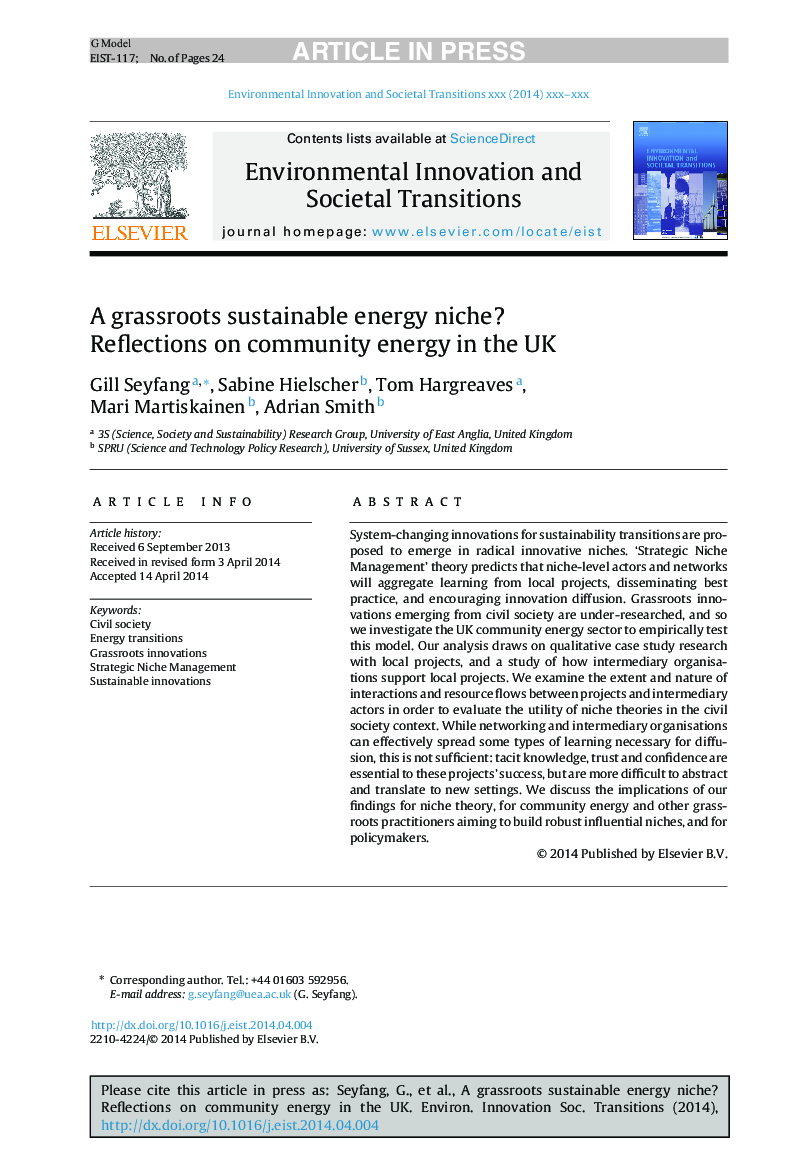| Article ID | Journal | Published Year | Pages | File Type |
|---|---|---|---|---|
| 6559522 | Environmental Innovation and Societal Transitions | 2014 | 24 Pages |
Abstract
System-changing innovations for sustainability transitions are proposed to emerge in radical innovative niches. 'Strategic Niche Management' theory predicts that niche-level actors and networks will aggregate learning from local projects, disseminating best practice, and encouraging innovation diffusion. Grassroots innovations emerging from civil society are under-researched, and so we investigate the UK community energy sector to empirically test this model. Our analysis draws on qualitative case study research with local projects, and a study of how intermediary organisations support local projects. We examine the extent and nature of interactions and resource flows between projects and intermediary actors in order to evaluate the utility of niche theories in the civil society context. While networking and intermediary organisations can effectively spread some types of learning necessary for diffusion, this is not sufficient: tacit knowledge, trust and confidence are essential to these projects' success, but are more difficult to abstract and translate to new settings. We discuss the implications of our findings for niche theory, for community energy and other grassroots practitioners aiming to build robust influential niches, and for policymakers.
Keywords
Related Topics
Life Sciences
Environmental Science
Management, Monitoring, Policy and Law
Authors
Gill Seyfang, Sabine Hielscher, Tom Hargreaves, Mari Martiskainen, Adrian Smith,
